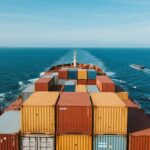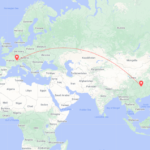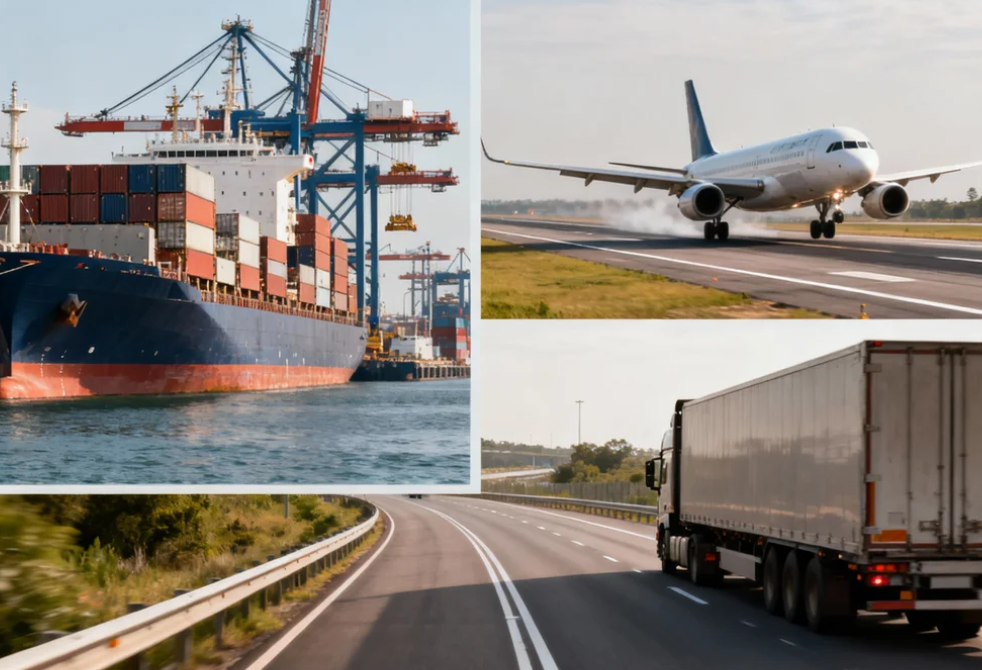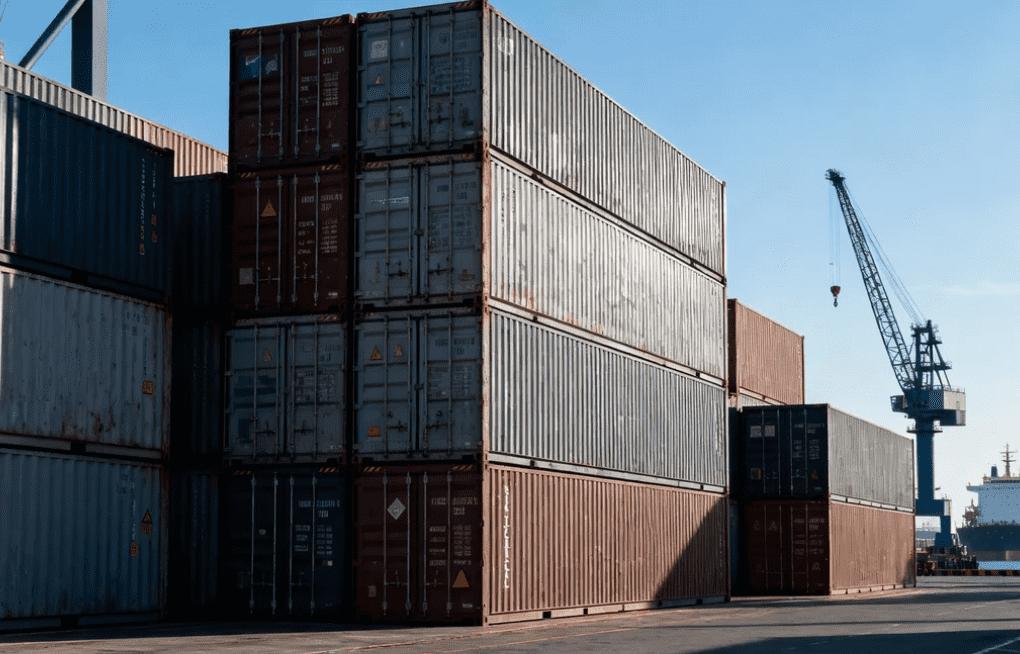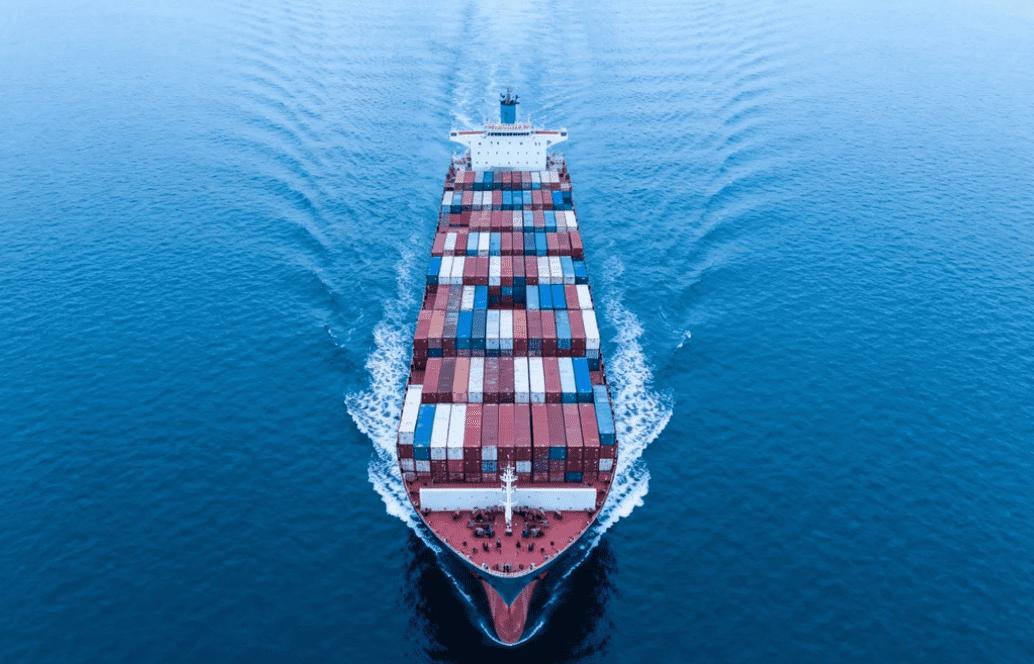Are you considering shipping from China to Vancouver but unsure where to start? Understanding the intricacies of this process is crucial for successful international trade. In this article, we will explore the key aspects of shipping logistics, including choosing the right shipping method, navigating customs regulations, and managing costs. Whether you opt for ocean freight or air freight, our comprehensive guide will provide you with essential insights and best practices to ensure a smooth shipping experience.
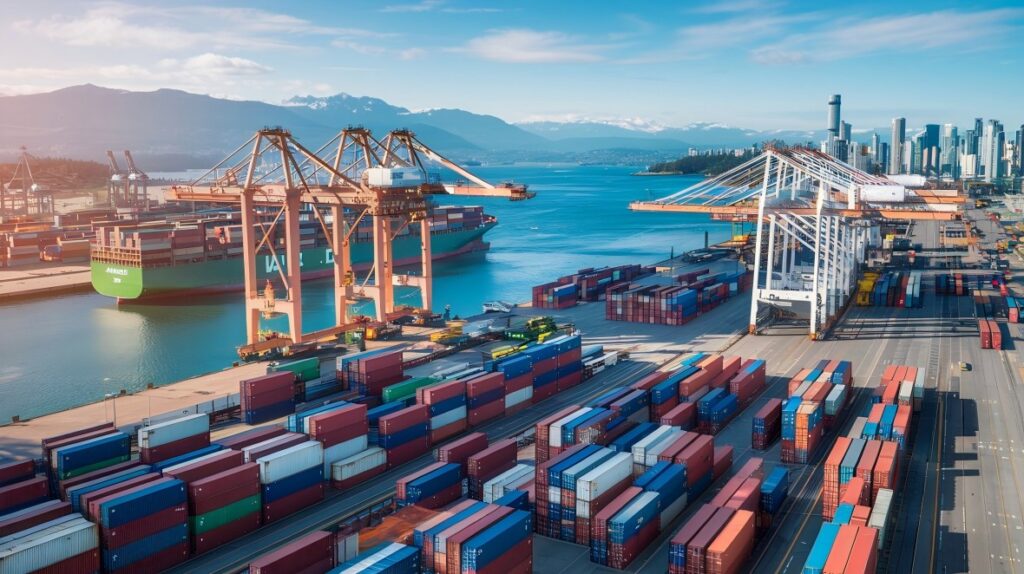
Introduction to Shipping from China to Vancouver
Overview of Trade Relations Between China and Vancouver
The trade relationship between China and Vancouver is an integral part of the broader economic ties between Canada and China. As one of Canada’s major import hubs, Vancouver has seen substantial growth in trade volumes with China, particularly in sectors like electronics, machinery, apparel, and consumer goods. In 2023, China’s exports to Canada reached approximately CAD 127.4 billion, with a significant portion of those goods entering through Vancouver’s ports. This thriving trade dynamic is facilitated by a range of shipping services that cater to the diverse needs of businesses importing goods from China.
The geographical proximity of Vancouver to the Asian markets, combined with its well-established logistics infrastructure, makes it a prime gateway for imports. As global demand for Chinese products continues to rise, understanding the nuances of shipping from China to Vancouver becomes essential for businesses aiming to optimize their supply chain.
Importance of Shipping Routes in Global Trade
Shipping routes are the veins of global trade, connecting manufacturers to consumers and enabling the flow of goods across vast distances. The shipping route from China to Vancouver is particularly significant due to the volume of trade it supports. The Pacific Ocean serves as the main artery for container shipping, with major shipping lines operating regular services that facilitate the transit of goods.
Efficient shipping routes contribute to lower logistics costs and faster delivery times, which are crucial for businesses aiming to compete in the global marketplace. Additionally, the increase in trade agreements and improved shipping technologies has enhanced the reliability and efficiency of these routes, allowing for smoother transactions and strengthened economic ties. For instance, the Comprehensive Economic and Trade Agreement (CETA) between Canada and the European Union, while not directly involving China, highlights the importance of robust trade partnerships and the role of shipping in fostering international commerce.
Choosing the Right Shipping Method from China to Vancouver
Ocean Freight from China to Vancouver
Ocean freight is the most commonly used method for shipping large volumes of goods from China to Vancouver. This method is cost-effective for bulk shipments, making it ideal for businesses that need to import large quantities of products. Major shipping lines such as Maersk, CMA CGM, and Hapag-Lloyd offer regular services on this route, with transit times typically ranging from 12 to 20 days, depending on the specific origin in China and any potential delays.
For instance, a standard 40-foot container shipping from Shanghai to Vancouver may incur costs that vary based on market conditions, fuel prices, and shipping line rates. Here’s a simplified breakdown of potential costs:
| Shipping Method | Estimated Cost (CAD) | Transit Time |
|---|---|---|
| Ocean Freight | 1,500 – 3,000 | 12 – 20 days |
Choosing ocean freight is particularly advantageous for businesses looking to minimize costs while maximizing their shipping capacity. For more details on how much is ocean freight from China, businesses can benefit from understanding the specific rates.
Air Freight from China to Vancouver
In contrast, air freight is the preferred option for businesses needing quick delivery of goods. Although it is significantly more expensive than ocean freight, air freight drastically reduces transit times, often down to just 3 to 5 days. This method is ideal for high-value or time-sensitive goods, such as electronics or perishable items.
Major carriers like DHL, FedEx, and UPS provide air freight services from several key airports in China, including Beijing and Shanghai, directly to Vancouver International Airport (YVR). However, businesses must consider the higher costs associated with this shipping method, which can range from CAD 5,000 to CAD 15,000 for similar cargo volumes compared to ocean freight.
| Shipping Method | Estimated Cost (CAD) | Transit Time |
|---|---|---|
| Air Freight | 5,000 – 15,000 | 3 – 5 days |
For companies looking for expedited shipping, options such as air freight from China to Canada can provide valuable solutions.
Comparing Shipping Methods: Ocean vs. Air
When deciding between ocean freight and air freight, businesses must weigh the trade-offs between cost and speed. Below is a comparative table to help businesses make informed decisions:
| Shipping Method | Cost (CAD) | Transit Time | Best For |
|---|---|---|---|
| Ocean Freight | 1,500 – 3,000 | 12 – 20 days | Bulk shipments, lower cost |
| Air Freight | 5,000 – 15,000 | 3 – 5 days | High-value, time-sensitive goods |
Ultimately, the choice of shipping method will depend on the specific needs of the business, including budget constraints, product nature, and delivery timelines. For companies looking for a reliable and efficient solution, Dantful International Logistics offers a comprehensive range of freight forwarding services, including both ocean and air freight, tailored to meet the diverse requirements of global traders. With our expertise, businesses can confidently navigate the complexities of importing goods from China to Vancouver.
READ MORE:
- Shipping From China to the USA
- Shipping From China TO Canada
- Shipping From China TO Mexico
- Shipping From China to Panama
- Shipping From China to Costa Rica
- Shipping From China to Brazil
- Shipping From China TO Colombia
- Shipping From China to Jamaica
- Shipping From China to Venezuela
- Shipping From China to Argentina
Key Considerations for Importing to Vancouver
Customs Regulations and Requirements
When importing goods from China to Vancouver, it is crucial to understand the specific customs regulations and requirements that govern the importation process. The Canada Border Services Agency (CBSA) oversees the enforcement of these regulations, which are designed to ensure the safety and legality of imports into Canada. Importers must comply with the Customs Act and the Customs Tariff.
Importers need to provide various documentation, including:
- Import permits: Certain products, such as food, plants, and animals, may require special import permits.
- Commercial invoice: This document must detail the transaction and include information such as the seller’s and buyer’s details, product description, quantity, and value.
- Bill of lading: A document issued by the carrier that serves as a receipt for the goods and outlines the contract of carriage.
- Packing list: This provides detailed information about the contents of the shipment, which assists customs in verifying the goods.
It is advisable to engage with a reputable freight forwarder, like Dantful International Logistics, to navigate through the complexities of customs regulations and ensure compliance with all requirements. Their expertise can significantly reduce the risk of delays or fines during the customs clearance process.
Duties and Taxes on Imports
Import duties and taxes can significantly impact the overall cost of shipping from China to Vancouver. Canada imposes a Goods and Services Tax (GST) of 5% on most imported goods, while some provinces may also charge a Provincial Sales Tax (PST) or a Harmonized Sales Tax (HST).
The calculation of duties is based on the Customs value, which is the total value of the goods, including shipping costs, insurance, and other related charges. The specific duty rate depends on the tariff classification of the product, as outlined in the Canada Customs Tariff.
To effectively manage import duties and taxes, importers should:
- Research the applicable tariffs for their specific products.
- Ensure accurate classification of goods to avoid overpaying duties.
- Explore any free trade agreements (e.g., the Canada-China Free Trade Agreement) that may reduce or eliminate certain duties.
Documentation Needed for Shipping
Proper documentation is essential for a smooth shipping experience and customs clearance when importing goods from China to Vancouver. The key documents include:
| Document | Description |
|---|---|
| Commercial Invoice | A detailed bill provided by the seller, outlining the transaction, including price, quantity, and product details. |
| Bill of Lading | A receipt issued by the carrier that serves as proof of shipment and outlines the terms of transport. |
| Packing List | A detailed list of each item in the shipment, aiding customs in inspection and verification. |
| Import Permits | Necessary for regulated goods such as food, plants, or animals, confirming compliance with Canadian regulations. |
| Certificate of Origin | May be required to verify the country of origin of the goods, especially for tariff purposes. |
Ensuring that all necessary documents are complete and accurate will help streamline the shipping process and mitigate potential delays or fines.
Shipping Costs from China to Vancouver
Breakdown of Shipping Costs
Understanding the breakdown of shipping costs when importing from China to Vancouver is essential for effective budgeting. The costs can be divided into several categories:
| Cost Component | Description |
|---|---|
| Freight Charges | Costs associated with transporting goods via air or sea. Consider exploring ocean freight options for better rates. |
| Customs Duties | Taxes imposed by the Canadian government based on the value of goods. |
| Insurance | Cost to insure the shipment against loss or damage. |
| Handling Fees | Charges for loading and unloading goods at ports or warehouses. |
| Storage Fees | Costs for keeping goods in a warehouse if customs clearance is delayed. |
| Brokerage Fees | Fees paid to customs brokers for assistance with documentation and clearance. |
Factors Affecting Shipping Rates
Several factors can influence the shipping rates from China to Vancouver:
- Shipping Method: Ocean freight is generally more economical than air freight, but it takes longer. Choosing the right method based on urgency and cost is crucial. For expedited options, check expedited shipping from China to Canada.
- Distance: The farther the shipping origin or destination, the higher the freight costs.
- Weight and Volume: Carriers often charge based on the dimensional weight of the shipment.
- Seasonality: Peak seasons, such as holidays, can drive up shipping prices due to increased demand.
- Fuel Prices: Fluctuations in fuel costs can impact freight rates significantly.
Tips for Reducing Shipping Costs
To keep shipping costs from China to Vancouver manageable, consider these practical tips:
- Consolidate Shipments: Combine smaller shipments into a single larger shipment to take advantage of lower per-unit shipping rates.
- Choose the Right Freight Forwarder: Partnering with an experienced freight forwarder like Dantful International Logistics can help you find the most cost-effective options and negotiate better rates.
- Optimize Packaging: Use efficient packaging to reduce weight and volume, which can lead to lower freight charges.
- Consider Alternative Ports: Sometimes shipping to nearby ports can be cheaper than directly to Vancouver.
- Plan Ahead: Avoid expedited shipping fees by planning your shipments well in advance.
By understanding the key considerations around customs, duties, and shipping costs, importers can navigate the complexities of international trade more effectively when importing from China to Vancouver.
Shipping Times from China to Vancouver
When shipping from China to Vancouver, the shipping time can vary significantly based on the chosen method of transport. Understanding these timelines is essential for effective supply chain management and ensuring timely delivery of goods.
Ocean Freight Shipping Times
Typically, ocean freight is the most cost-effective method for transporting large quantities of goods. The average shipping duration for ocean freight from major ports in China (like Shanghai, Ningbo, or Shenzhen) to Vancouver is approximately 15 to 30 days, depending on the specific shipping route, vessel speed, and port congestion.
Estimated Shipping Times for Ocean Freight:
| Port of Origin | Estimated Time to Vancouver |
|---|---|
| Shanghai | 20-25 days |
| Shenzhen | 18-22 days |
| Ningbo | 22-28 days |
| Guangzhou | 25-30 days |
Air Freight Shipping Times
Air freight is a much faster alternative, ideal for urgent shipments. The typical transit time for air freight from China to Vancouver is around 3 to 7 days. However, this method is considerably more expensive than ocean freight.
Estimated Shipping Times for Air Freight:
| Port of Origin | Estimated Time to Vancouver |
|---|---|
| Shanghai | 5-7 days |
| Shenzhen | 3-5 days |
| Beijing | 4-6 days |
| Guangzhou | 4-7 days |
Faster shipping options can be available through expedited shipping from China to Canada, but they come with higher costs.
Best Practices for a Smooth Shipping Experience
Choosing the Right Freight Forwarder
Selecting the right freight forwarder is crucial for a seamless shipping experience. A reputable forwarder like Dantful International Logistics can provide you with comprehensive services, including ocean freight, air freight, customs clearance, and insurance. Look for a forwarder with experience in the China-Vancouver trade route, as they will have valuable knowledge about shipping regulations, local customs requirements, and the best routes to take.
Factors to Consider:
- Experience and Reputation: Research and read reviews about potential freight forwarders.
- Services Offered: Ensure they provide a full range of services to meet your shipping needs.
- Communication: Choose a forwarder who maintains clear and open lines of communication.
Packaging Tips for International Shipping
Proper packaging is essential to ensure that your goods arrive in Vancouver without damage. Here are some best practices to consider:
- Use Durable Materials: Invest in high-quality packaging materials that can withstand the rigors of international transport.
- Label Clearly: Ensure that all packages are clearly labeled with the destination address and any necessary shipping information.
- Consider Weather Conditions: Protect items from moisture and temperature fluctuations, especially for sensitive goods.
- Follow Regulations: Make sure your packaging complies with both Chinese and Canadian shipping regulations.
Tracking Your Shipment from China to Vancouver
Once your shipment is on its way, tracking becomes essential for peace of mind and operational efficiency. Most reputable freight forwarders, including Dantful International Logistics, offer tracking services that allow you to monitor your shipment in real-time.
Benefits of Tracking:
- Transparency: You’ll receive updates on your shipment’s location and expected delivery date.
- Proactive Management: Early identification of potential delays allows you to make necessary adjustments.
- Enhanced Communication: Stay informed and communicate easily with your freight forwarder about your shipment.
In conclusion, understanding shipping times and implementing best practices can greatly facilitate the process of importing goods from China to Vancouver. By choosing a professional logistics partner like Dantful International Logistics, you can ensure a smooth and efficient shipping experience.

Young Chiu is a seasoned logistics expert with over 15 years of experience in international freight forwarding and supply chain management. As CEO of Dantful International Logistics, Young is dedicated to providing valuable insights and practical advice to businesses navigating the complexities of global shipping.


